Rob Seidelman
Released after 6 years
Diane: How long was your sentence and how many years did you serve?
Rob: I served six years and three months of a twenty-five year sentence. Twenty-five years was my second offer. My first offer was forty, and that’s not an offer, that’s a sentence, so I turned it down.
Diane: Is it true they give you a release date, then have the ability to take it away?
Rob: Yeah. When you go in for your interview, if they don’t like what they hear, they ask you questions about the case, about your past and about where you’re going. If they don’t like it, they tell you to come back anywhere from four months to a year later.
Diane: Do they tell you what you need to do in that amount of time?
Rob: Yes ma’am, if you don’t have your classes finished, they tell you, “Finish up that class and we’ll see you in four months. Stay write-up free.” That’s all they ask. And if you do what they ask, they let you go. A lot of people get caught up in the chaos of the drugs and the gangs. They continue to go to the board and they continue to get what’s called “set.” They’ll set you up and set you up. They end up finishing their sentence and get what they call “discharging.” They split the sentence in half. You’re only required to do a quarter of that before you see the parole board, but if you continue to go back and back and don’t get it right, you’re going to do half your sentence.
Diane: Is it customary to get a parole date after you serve 25% of your sentence?
Rob: Yeah, it’s kind of complicated though. It’s 25% of a flat sentence. They give you one number of years for your sentence. If you get a range for your sentence, they can be 1-15, 2-10 or 3-15 years, those are the most common prison sentences.
Diane: Do West Virginia still have the Three Strikes law?
Rob: Yes, we do. I weaseled out of that one. I squeezed through the cracks.
Diane: In California if you’re a lifer, you have to do twenty years.
Rob: It’s fifteen in West Virginia.
Diane: Tell me about your experience during your parole board hearing.
Rob: I was very nervous because of my sentence. I had a violent crime, a robbery. I went in there with my classes done. They asked me one of three questions and the question I got was: Why do you think we should give you parole today? I gave probably one of the oddest answers ever, and I think it may have had something to do with my release. “This state is riddled with drugs; it is horrendously, horrendously bad. I have my classes done. I haven’t had a write-up in awhile, and I’ve achieved something that not many people achieve here.” He said, “What is that?” I said, “Well, I currently stand before you having never done an opioid drug and I’m not strung out.” He said, “You have your parole plan set?” I said, “No, I’m waiting right now.” He said, “Alright, we’ll be back on the screen in a minute.” He came back on the screen and said, “Where are you going to? What kind of program is it?” I said, “Faith-based.” It was all pretty quick. He said, “Alright, well I’ve consulted with my other two members, and we’re going to give you parole today. You have 30 days from today. You have a hold on you: you can’t go anywhere until everyone is notified.” They have to notify anyone that had anything to do with your case.
Diane: What was your re-entry like, and what does typical re-entry look like in West Virginia?
Rob: It is mandatory you have a home plan. If you don’t have one, they have counselors who work on getting you a home plan. There’s no money or any financial aid that you get. If you get a bus ticket, it comes out of your money. I had a home plan that just got approved after parole. I had 30 days to get that done, and if I hadn’t, I’d have gotten a setup. And you stay there. You just have to have a home plan.
Diane: Is that easy?
Rob: No, in the place I was, it wasn’t. I went through almost four.
The first one said they didn’t have any beds. It sounded like an inmate got a job at the place.
The second said that I have to have parole in your pocket before they allow any parolees. You have to actually have parole granted before they accept you.
The third backed out in my second interview, I don’t know why. She said she’d have an answer that’d show up by the time I saw the board, but they just didn’t. It was a really nice one, too. There’s only a few in West Virginia from what I hear. There’s a lot of drugs and chaos here. The state’s in bad shape. I’ve seen a lot in six years, guys get stuck. People are building sober living homes for financial gain, which is not what you’re supposed to do. There’s a lot of stuff going on.
Diane: How were you feeling when you were found suitable, and what happened next?
Rob: I was feeling elated. After that, I still had another thirty days. I made phone calls to family and friends, letting them know that I made it. I started making plans and giving stuff away. If you have a home plan, you can start giving stuff away that you don’t need.
Diane: What kind of things are you talking about?
Rob: Just extra stuff you don’t need. CDs, CD players, stuff you don’t need in the free world. Stuff you were only using to survive. Extra shower shoes, extra tennis shoes, extra jogging pants, stuff like that. Extra stuff that you’re not going to want to bring out here.
Diane: Did you have a cellie?
Rob: I lived in a six-man cell with five cellies. It’s called the cage. We are set up like dogs, in cages in Stevens Correctional Center down in McDowell County. It is the armpit of the state, the very bottom. It’s a joke of a prison. It’s run by the county- it’s not even run by the state of West Virginia. They lease it out. Since there’s overcrowding, that’s where I got stuck. I got put in a one-fencer, but if yours is a really serious case, then you’ll go to Mt. Olive or a medium or max security where they’ve got more fences.
I did my thirty days. Then, they put me on a Greyhound bus, out of my own money, and sent me to Breckley, West Virginia, a place I’d never been.
Diane: How did you feel the night before your release?
Rob: All kinds of stuff. I wanted to make sure I took the things that I needed because I didn’t know if I’d be able to get to a store and buy stuff. One of the biggest issues was trying to envision where I was going. What is it going to look like? Is it clean, as far as drugs go, or is it like most of the ones I’ve heard of? Is it going to be laid back or crazy? Am I walking out of here into a crazy place? I was nervous, filled with lots of thoughts and my mind was racing.
Diane: How did your release go?
Rob: At 5 o’clock in the morning, my doors opened. The correctional officer said, “You got all your stuff?” I said, “Yeah.” I went downstairs by myself. I walked in with my final papers for the halfway house and medicaid papers. The night before you take a urine sample. She gave me all my papers with parole instructions, the officers I had to see and what time I needed to see him. An officer came out and said, “You ready?” And I was put in the van. They took me to the Greyhound station.
Diane: What did it feel like being outside?
Rob: It felt new and great. They dropped me off at a bus station I had never been to and told me to wait.The driver said, “The bus comes at this time. I’m gonna leave you right here, but I’ll be driving around for a while before the bus comes.” He had to wait to make sure I got on the bus. After that, the race was on. I was just standing around waiting at the bus stop, exhilarated, mind racing a bit. Some man was at the bus stop, so I bummed a cigarette off of him. Instantly, I connected with two people: one was from Chicago and the other was from West Virginia. The guy from Chicago offered me a snuff pack (chewing tobacco) that you put in your lip, and the guy from West Virginia offered me a cigarette. He was a plumber. I didn’t like chewing tobacco, so I spit it right out! The guy from Chicago and I had a lot to talk about. I’m from Aurora, just outside of Chicago. He was 28 and plays for the West Virginia basketball team. I gave him a little piece of information from experience right off the top because I write about the lows and the turmoils of prison. I gave it to him because he looks like he’s headed in the right direction. I told him, “Whatever you do, stay away from drugs and stuff, because you don’t ever want to end up in a West Virginia prison.”
Diane: How did you know which bus to get on?
Rob: Well, the buses were late. When they finally started showing up, one of the drivers opened the door, and was like, “Robert? Kevin?” I said, “My name’s Robert.” She said, “Well, come on!” How’d she know? It didn’t make a lot of sense. I’d never been on a Greyhound bus before, plus I’m nervous. I’m fresh out. There’s a clear plexiglass door that I had to pull to get on the Greyhound. I went to push it, and she was like, “Come on! Go on back!” I said, “Will you give me a second? I’ve never been on a Greyhound before.” She was a bit of a snob to me. It’s kind of crazy. I sat on the Greyhound and it was half full. There were a lot of people passed out asleep, slumped over. The next stop was the Beckley Greyhound station. I was just thinking about what it’s going to look like. I was seeing all the mountains and stuff. I came out here and got to see the state a little before I caught my case. It’s a nice view. It’s a beautiful country and state. I was just curious about where I was going.
I was told I had until three o’clock before I had to check into my house, so I told them I wanted to go buy a coat because I didn’t have one. The manager told me that was fine, but I just had to be there by three. I asked if it’d be easy to get a taxi or an Uber and it wasn’t, so I walked.
Diane: Where did you go to buy a coat?
Rob: Walmart.
Diane: How did it feel after not being in a store for so many years?
Rob: Crazy. I felt like everybody was looking at me. I’m seven feet tall and littered with tattoos. Some people were checking me out, but most of them weren’t really looking at me, I just thought they were because I felt like I stood out. I felt like the lights were on me. I went to McDonald’s and talked to a guy and a girl. Once I initiated contact with them, two human beings that weren’t inmates, that was the moment I started feeling human again. It’s hard to explain. I feel like “This is the real world.” I was a little bit nervous. The guy asked me about my tattoos. He said, “Wow, you’ve got a lot of tattoos.” Then the girl turned around and said, “Yeah, I need to get new ones. I work out, too.” There was no conversation about working out! Later I thought I should’ve said something else, but I was just nervous. A woman there let me use the phone to activate my money card. Then, I got myself a chicken sandwich, fries and a coke and woofed it down.
Diane: How did that chicken sandwich taste?
Rob: I didn’t even taste it, to be honest. The french fries were good, but I don’t remember that chicken sandwich.
Diane: What happened next?
Rob: I went to the gas station, and a woman there tried to call me an uber or a taxi, but said she couldn’t get through. Then I called the guy at the house. While I waited I bought my first pack of cigarettes and a lighter and smoked my first real cigarette. I really felt different, because I was the only one standing outside. She said, “You can’t hang out there too long because they’ll be on ya.”
Diane: Who was she referring to?
Robert: The police. Apparently, one of the hottest spots in Beckley, West Virginia is the Greyhound Station. It is terrible. When the guy from the house pulled up, he said, “Man, I thought for sure I was going to find you in the bathroom, overdosed.” I said, “I’m not about that, that’s not how I roll. I don’t do drugs anymore.” Everybody at the house was really really really welcoming. I got patted down and took my third drug test.
Diane: How did you get a cellphone?
Rob: I was using regular phones at Walgreens, and Walmart. I was feeling really helpless and like I was a burden, or stranded.
Diane: What is the house like?
Rob: It’s huge. It’s an old church from the 1900’s. They made the actual worship part of the church our living room. It has stained glass windows so the sun doesn’t shine through and all you see is praying hands. It has a big, soft, L-section couch, a love seat, two other couches, a 52” TV, a pool table, weights, books, telephone, a computer and a table.
Diane: Do you have a room to yourself, or do you share?
Rob: I have my own room. The house holds 12 guys.
Diane: Are you free to come and go?
Rob: No, I get one pass a week. I’ve been here for three months. After two months you get one eight hour pass a week. They still give you a ride, like to the doctor. But no, you can’t come and go as you please. We can go outside. There’s a perimeter to walk, and that’s as far as you can go. You get a 24 hour pass after four months, and the program is six months long. After six months, you can get a job.
Diane: Are you taking classes until then?
Rob: I’m taking classes right now. It’s a faith-based program, so we have Bible study every morning, and church twice a week.
Diane: What do you do in your free time?
Rob: I listen to music and work on my writing. I’m putting ebooks together with my poetry. I’ve been singing for the church. I’ve done a couple songs already. I’m getting ready to sing a song by Josh Turner “Long Black Train” this Sunday. I’ve met a couple people, I keep in contact with friends, I play pool, and work out. I just try to stay busy. It is really nice. I was referred to this place by another inmate. He said, “I highly recommend this place. It is where God is at.” He’s correct. There’s a church we go to up the hill that funds this place. After being here for 16 days I got a brand new pair of pants and a nice dress shirt from the church. We all got cosmetic kits. There’s always a ton of donations. It’s a humongous place. It’s an incredible way to come out of an institution. I don’t know, I’ve never been to a half-way house. This is the place to be, I highly recommend it.
Diane: Have you had a memorable meal since you’ve been out?
Rob: I had BBQ pork chops, baked potatoes and sweet corn. We have chores to do, and there’s one guy that likes to cook so he’s been doing all the cooking. He’s amazing. I’ve had a few memorable meals. He makes a roast every two weeks. We all share the dishes. We have five refrigerators. There’s two-man rooms and only two single rooms, so I just got lucky.
Diane: How long can you stay there?
Rob: Until my parole is up, one year. After six months I can get a job and come and go as I please. At ten months I could probably get off early if I mind my p’s and q’s.
Diane: What are your future plans?
Rob: Right now, it’s hard to say. I’ve signed up for a couple job programs. I’m certified in a couple different places from my past. I might do construction or horticulture. I’m working on getting my driver’s license. Now I’m just getting closer with God, going to church, singing. I’m making a poster for church. We have to make one about any women that have impacted our lives and have passed on. My plans are just to succeed. I’m following my gut instinct, since that’s what brought me here.
Déjà vu
by Rob Seidelman
I saw on the evening news tonight,
how a meteorologist was giving insight.
It was a serious, somber, scary tune,
he said a big storm was coming soon.
Mother Nature sent her wrath,
Louisiana in its path.
All Their dirt has turned to mud,
another dreaded earthly flood!
So much rain; so much pain,
Another unwanted visit from a hurricane!
Vicious winds to uproot trees,
Bringing locals to their knees,
Downed power lines and telephone poles,
bleeding hearts and broken souls.
A neighborhood turned into a pile of rubble,
Who could have imagined this much trouble?
Bourbon street has disappeared,
Just what everyone had feared.
For such a famous part of town,
Now there’s not anyone around.
Once again, they must all rebuild,
I wonder how many this one killed?
Families searching for their kin,
They wait for the rescue to begin.
How many tears must one state shed?
Only future hardships lie ahead.
Nothing is easy when everything is wet…
From another storm they won’t forget.

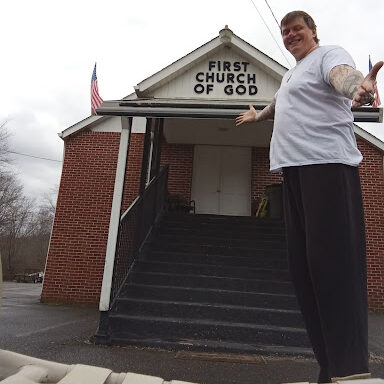
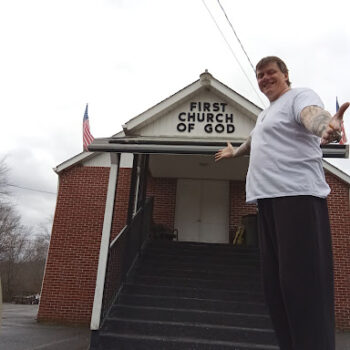
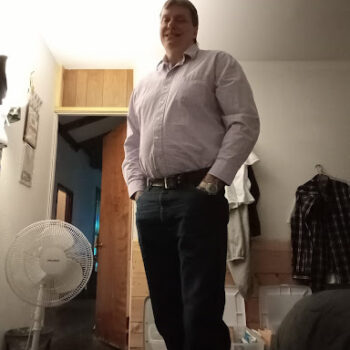
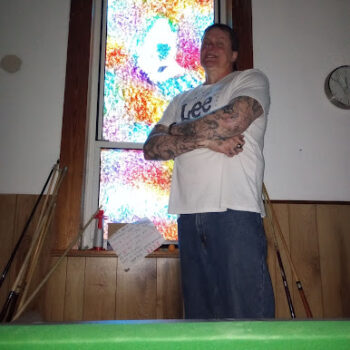
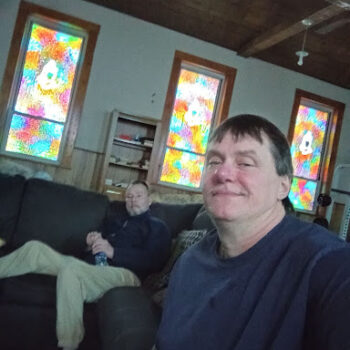
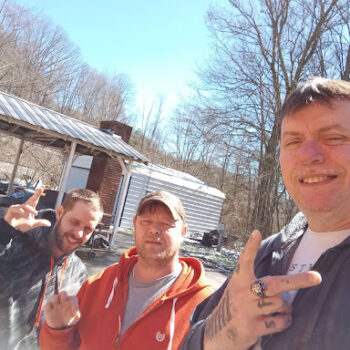
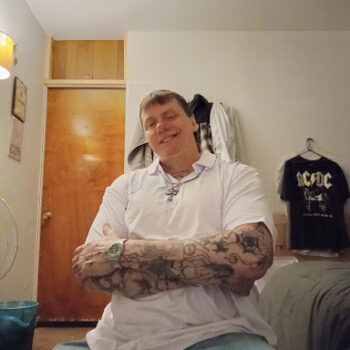
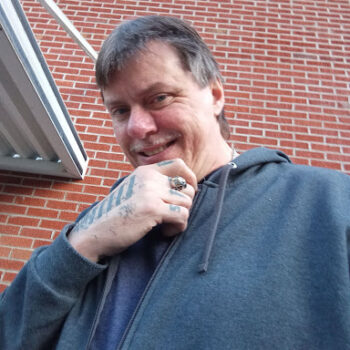
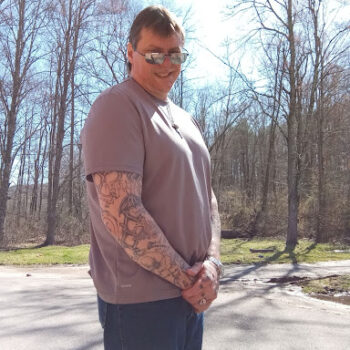
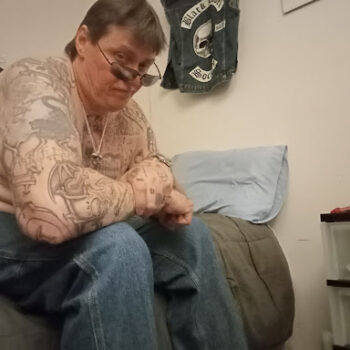

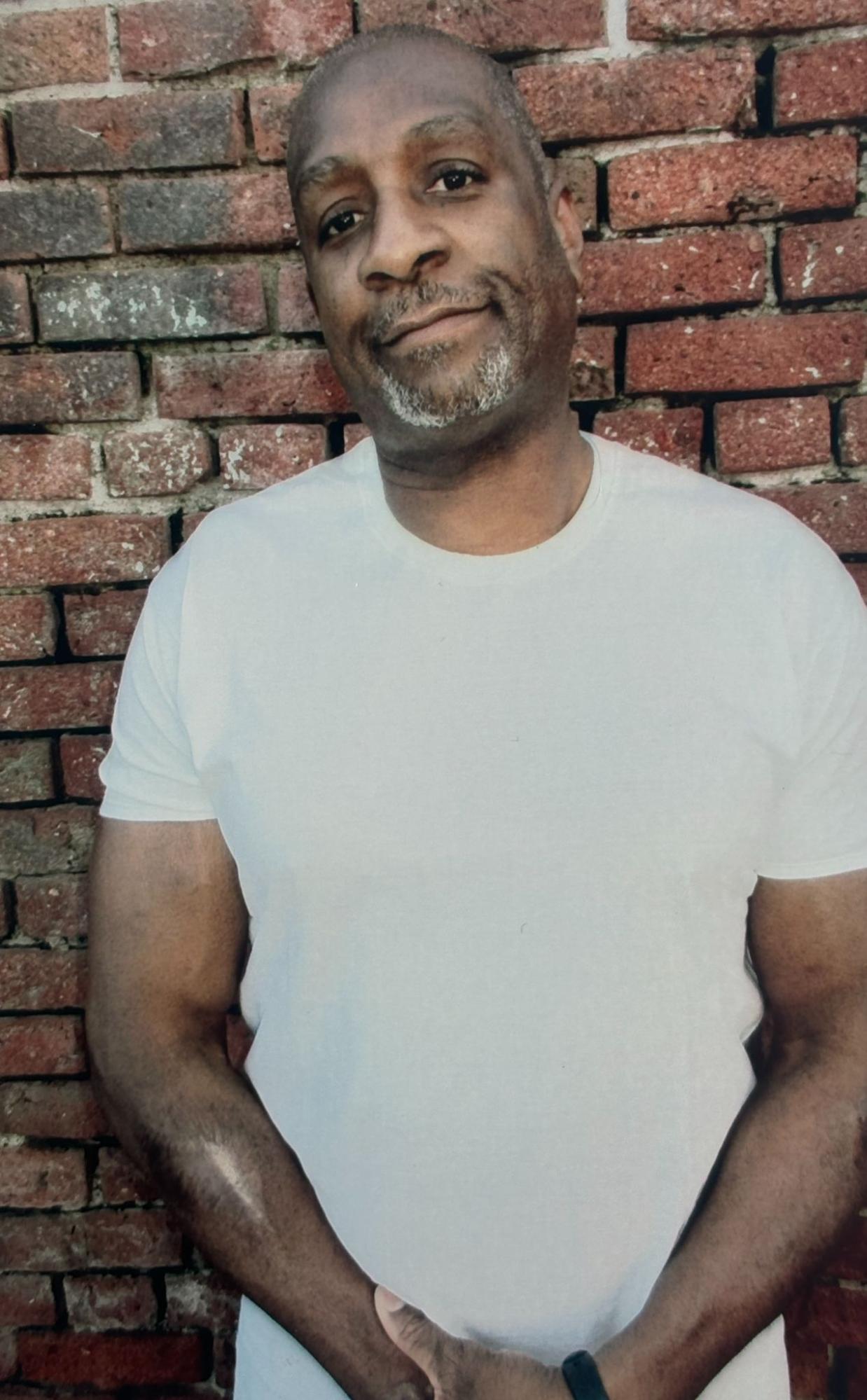
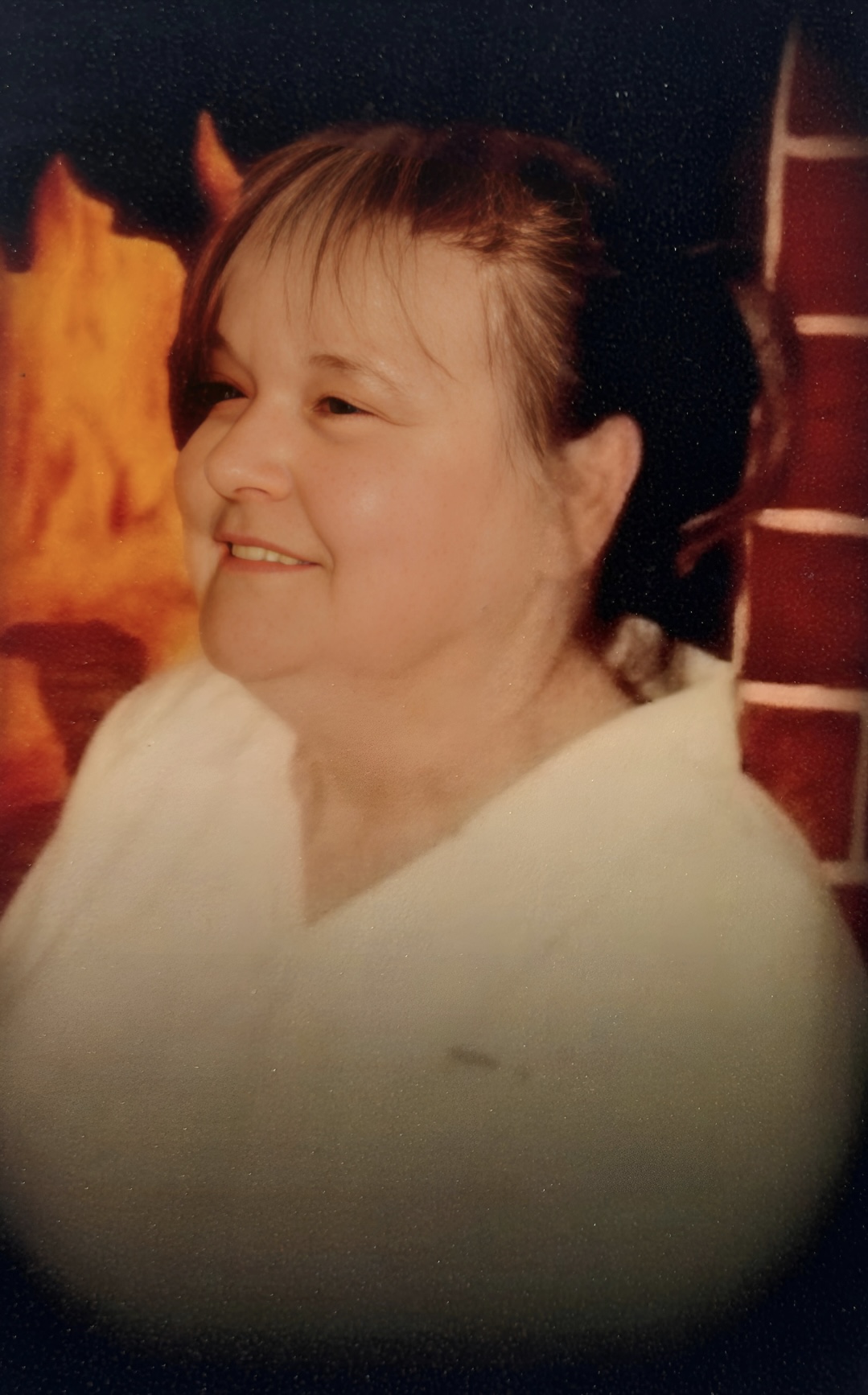


Way to go, Rob! Stay positive and keep it up. Thanks for sharing your story and your writing.
Best wishes-
Geoff